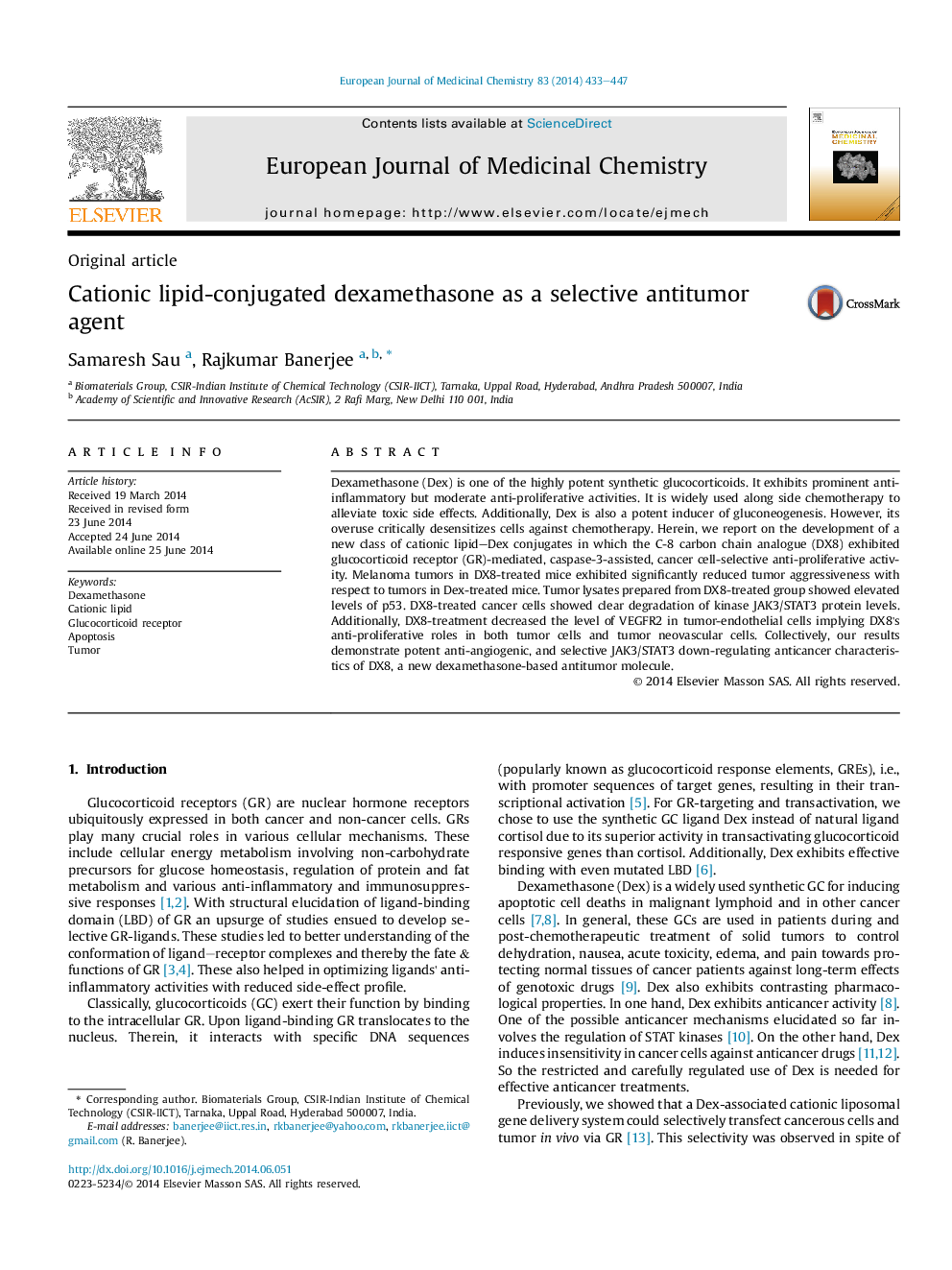| کد مقاله | کد نشریه | سال انتشار | مقاله انگلیسی | نسخه تمام متن |
|---|---|---|---|---|
| 1392443 | 1501133 | 2014 | 15 صفحه PDF | دانلود رایگان |
• DX8, a cationic lipid–dexamethasone derivative, exhibits high anticancer activity.
• DX8 regulates kinases such as Akt1 and JAK3/STAT3.
• DX8 triggers caspase-3 activation and up-regulation of p53.
• DX8 induces apoptosis in tumor cells and tumor-associated endothelial cells.
• DX8 effectively regresses tumor growth in mice.
Dexamethasone (Dex) is one of the highly potent synthetic glucocorticoids. It exhibits prominent anti-inflammatory but moderate anti-proliferative activities. It is widely used along side chemotherapy to alleviate toxic side effects. Additionally, Dex is also a potent inducer of gluconeogenesis. However, its overuse critically desensitizes cells against chemotherapy. Herein, we report on the development of a new class of cationic lipid–Dex conjugates in which the C-8 carbon chain analogue (DX8) exhibited glucocorticoid receptor (GR)-mediated, caspase-3-assisted, cancer cell-selective anti-proliferative activity. Melanoma tumors in DX8-treated mice exhibited significantly reduced tumor aggressiveness with respect to tumors in Dex-treated mice. Tumor lysates prepared from DX8-treated group showed elevated levels of p53. DX8-treated cancer cells showed clear degradation of kinase JAK3/STAT3 protein levels. Additionally, DX8-treatment decreased the level of VEGFR2 in tumor-endothelial cells implying DX8's anti-proliferative roles in both tumor cells and tumor neovascular cells. Collectively, our results demonstrate potent anti-angiogenic, and selective JAK3/STAT3 down-regulating anticancer characteristics of DX8, a new dexamethasone-based antitumor molecule.
Development of a cationic lipid–dexamethasone conjugate, DX8 as an anticancer agent, which induces apoptosis in both tumor cells and tumor-associated vascular endothelial cells for effective regression of tumor growth. Figure optionsDownload as PowerPoint slide
Journal: European Journal of Medicinal Chemistry - Volume 83, 18 August 2014, Pages 433–447
